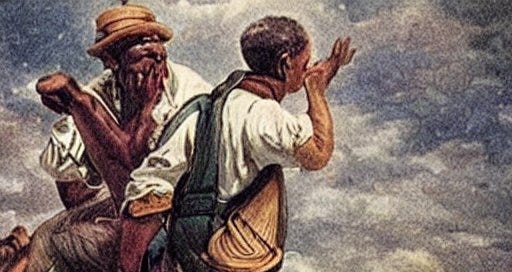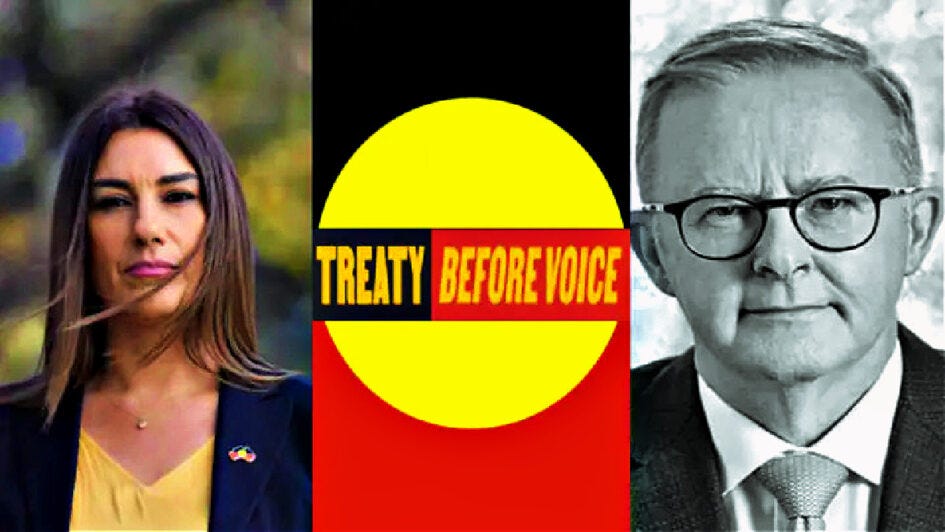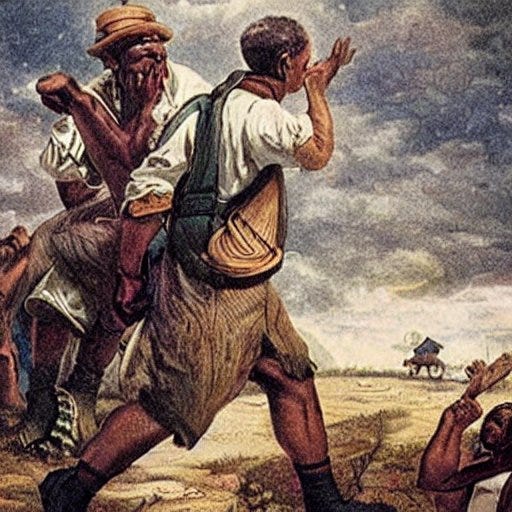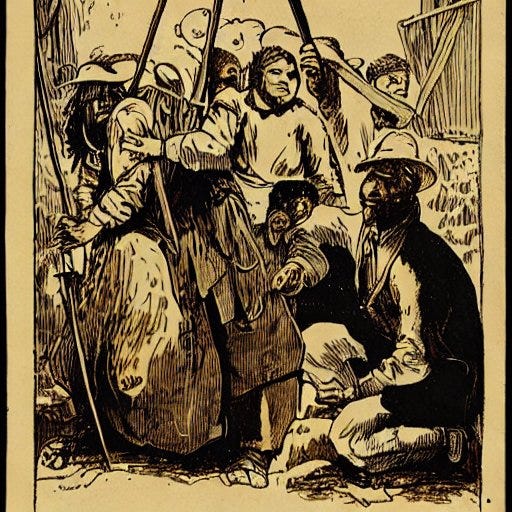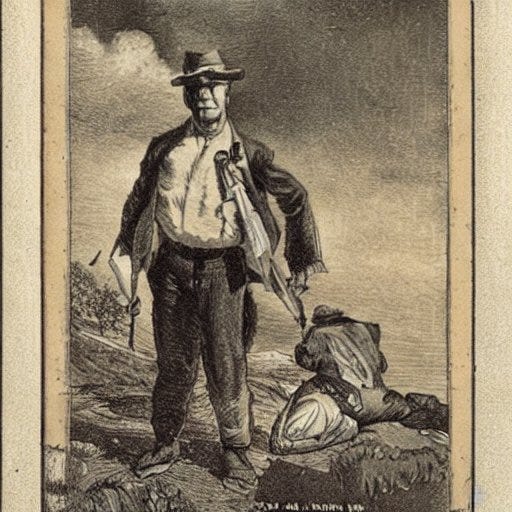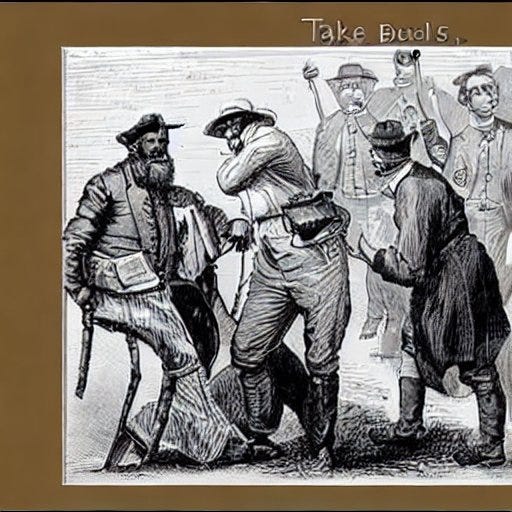Attacked from the Left and Attacked from the Right: The Australian Government's “White Man’s Burden” Indigenous Voice to Parliament
By Paul Gregoire: Sydney Criminal Lawyers Blog
Kipling’s 1899 poem The White Man’s Burden, refers to the US colonisation of the Philippines, and, despite its release a century after the British subjugated this continent’s First Peoples, it reflects the same basic tenet of both projects: that white people are morally obliged to civilise peoples of colour.
Take up the White Man’s burden—
Send forth the best ye breed—
Go send your sons to exile
To serve your captives' need
To wait in heavy harness
On fluttered folk and wild—
Your new-caught, sullen peoples,
Half devil and half child
Monday saw legislation passed federally to facilitate a national vote on whether to establish yet another Indigenous body to advise government, and a referendum is needed as this body, with no real veto power, will see First Nations constitutionally recognised: a key Howard government want.
In response, Senator Lidia Thorpe tweeted, “Happy Assimilationist Day”, which many rights-forward-thinking people don’t seem to get, as the mainstream line posits the Voice will empower, not further subordinate First Nations to white rule, which is exactly what it will do prior to petering out.
For decades First Nations communities have called for treaty, recognition of sovereignty, land rights, an end to the ongoing requisition of Country and self-determination, but with the Voice, Indigenous people will be forced to approach the AUKUS rulers to ask, “Please sir, can I have some more?”
And to further clarify this, it’s worth perusing comments made by PM Albanese at a March presser, that reveal the Voice proposal Labor and, despite its “opposition”, the Coalition have in mind, which is a body inspired by Kipling’s sentiments regarding white supremacy’s role in the civilising mission.
Gammin to say the least
A journalist asked Albanese at a 27 March press conference regarding the Safeguard Mechanism, the government’s fudged attempt at appearing to take climate action, whether this was the type of matter that the Indigenous voice to parliament could provide advice on.
“Of all the very strange questions I have been asked about the Voice, that’s up there,” the burdened white leader said in a manner that expressed legitimate shock. “You know, the Voice is about matters that directly affect Aboriginal and Torres Strait Islander people. That’s what it’s about.”
Thorpe outlines that the PM’s “surprise at the idea of a First Nations advisory body advising on the Safeguard Mechanism just reveals his colonial understanding of issues that affect our people”, adding “our relationship with the lands, waters and skies is the foundation of our culture”.
“It also reveals how limited the scope of the advisory body is going to be. If it can’t advise on something as important to us as land, which is so linked to our health and wellbeing, then it’s clearly a token advisory body.”
The Gunnai, Gunditjmara, Djab Wurrung woman described the prime minister’s assertion that climate change issues don’t directly affect First Nations as an absurdity, and she further stated that it clearly reveals that the government is limiting any reach the Voice may have.
“First Peoples are feeling the impacts of climate change in more extreme ways than any other people in this country,” she continued. “Right now, graves are being washed away in the Torres Strait Islands, waves are lapping up at the doors of houses, climate change is hurting First Peoples.”
Civilised white militarisation
The PM wasn’t merely incensed by the suggestion that an issue encompassing the climate crisis, the expansion of fossil fuel extraction on stolen lands and the ongoing destruction of Country concerned the Voice, as there were a few other matters the white man considered don’t directly affect the Indigenous.
After making an exceedingly condescending quip about the Voice being able to make suggestions on who should play 5-8 for Souths football team on the weekend, he added, “The Voice is not about defence policy. It’s not about foreign affairs policy.”
Of course, at present, the key defence and foreign affairs matters concerning this nation are the establishment of AUKUS, the acquisition of nuclear submarines, and a heightened stationing of US, UK and Japanese troops in Australia, which is all in an effort to provoke a coming war on China.
“First Nations people have been subjected to the violence of the British and Australian military since colonisation,” said the senator representing The Black Sovereign Movement in parliament. “The government has extracted wealth from the land to spend on military for war and politics.”
“How the wealth stolen from us is spent is our business and is something that an advisory body with any substance would at least be able to give advice on,” she underscored.
Within months of the bipartisan AUKUS project details being publicly clarified, how and what the nation’s going to acquire in terms of nuclear-powered submarines has become unclear once more, but the at least $368 billion price tag remains, meaning austerity measures for decades to come.
“First Nations are going to be impacted by Australia going to war as much, and probably more than any others in Australia,” Thorpe made clear. “We saw how First Nations at Maralinga were killed and poisoned by nuclear weapons testing during the Cold War.”
And the senator further stressed that, as the subs on order are nuclear-powered, the uranium will be extracted from First Nations land, effectively poisoning and destroying it. And the resulting waste will simply be dumped back onto that land, poisoning the people, in an extremely civilised manner.
An unwarranted burden
“The Albanese comments are some of the most honest comments we’ve had from the government on what this advisory body is really about,” Senator Thorpe continued.
“It is them dictating what it can advise on before it has even been created and it is them that will say what it can do if it comes into existence.”
Thorpe’s opposition to the Voice, whilst no anomaly amongst First Nations people, has led to her demonisation in the public sphere, which has gone as far as to see some claiming she supports the Coalition’s “No” campaign, when this is just a convenient settler colonial misrepresentation.
The senator appeared with other prominent members of the Blak Sovereign Movement in federal parliament, or “inside colony headquarters”, on Tuesday, to discuss opposition to the Voice, and how their dissenting voices have simply been erased from the debate by media and government.
These individuals included Aboriginal Tent Embassy co-founder Euahlayi elder Ghillar Michael Anderson, Redfern Tent Embassy spokesperson Wiradjuri elder Jenny Munro, guns out of remote Aboriginal communities campaigner Warlpiri elder Ned Jampijinpa Hargraves, Murrawarri Republic chair Fred Hooper, leader of the Wangan and Jagalingou campaign against the Adani mine Adrian Burragubba and Noongar activist Marianne MacKay.
“The government is ignoring their voices now and Albanese’s comments make it clear that he intends to keep ignoring the voices of First People’s with the Voice,” Thorpe told Sydney Criminal Lawyers, after the referendum legislation had passed through both houses of parliament.
“It is a voice for the government not to the government,” the senator maintained in conclusion.
Paul Gregoire is a Sydney-based journalist and writer. He has a focus on social justice issues and encroachments upon civil liberties. Prior to Sydney Criminal Lawyers®, he wrote for VICE and was the news editor at Sydney’s City Hub. Paul is the winner of the 2021 NSW Council of Civil Liberties Award For Excellence In Civil Liberties Journalism.

